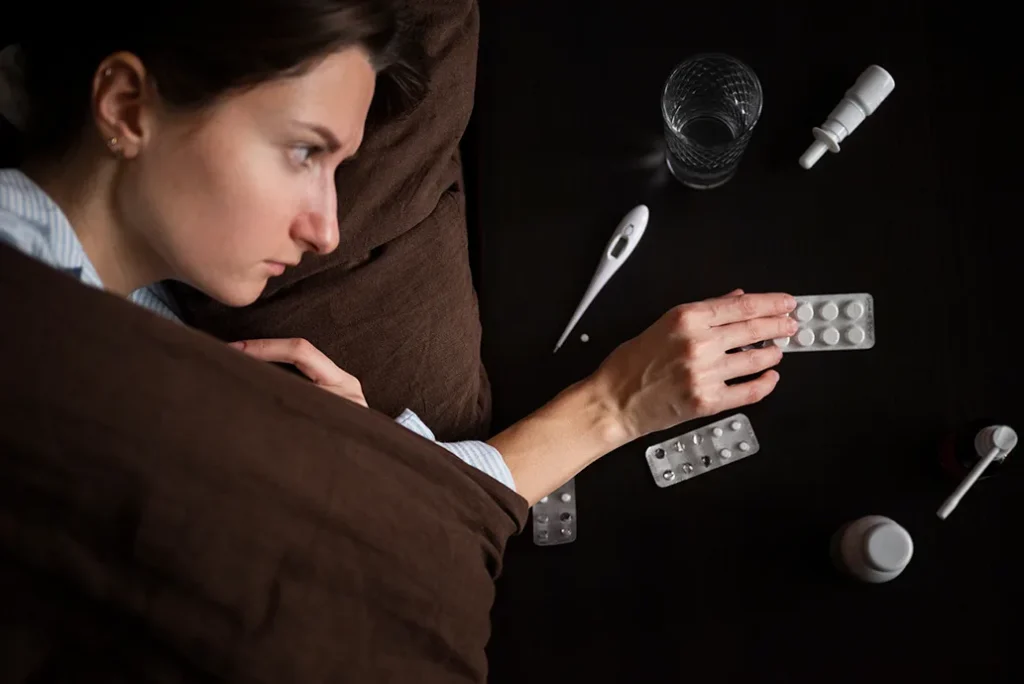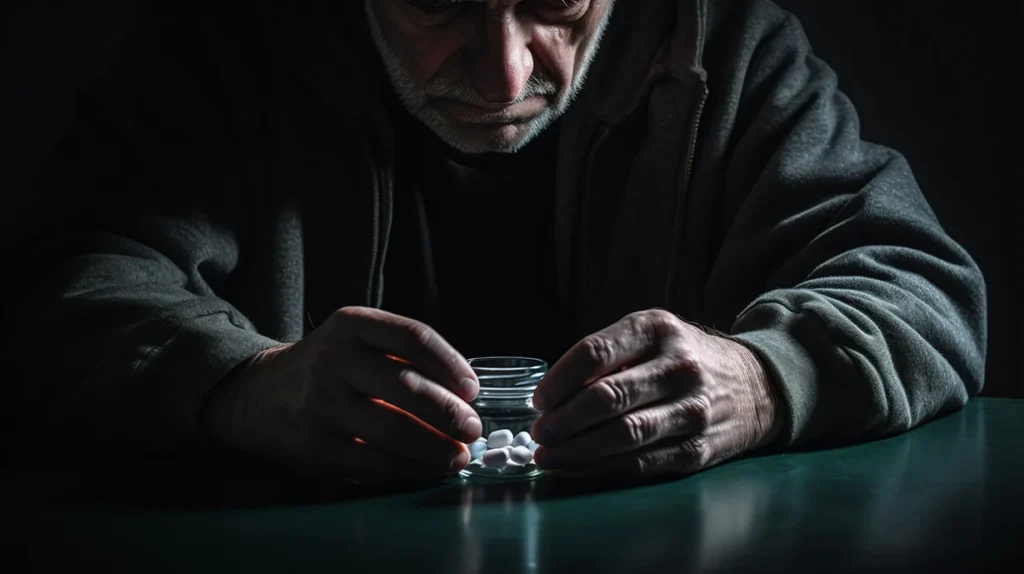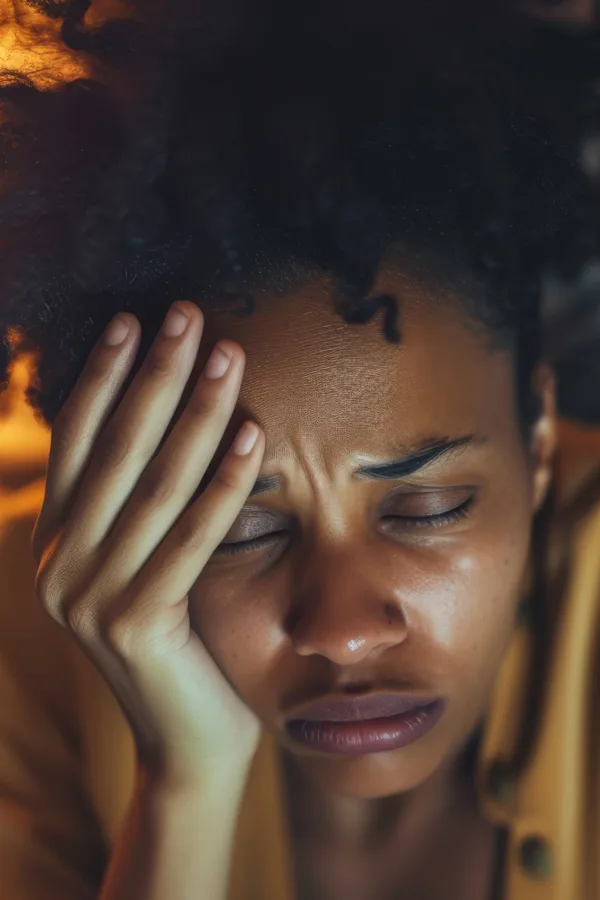Cocaine Rehab Center in New Jersey
Get personalized care at our cocaine addiction rehab for a new beginning.
Request a Callback
Cocaine Addiction Treatment: Overview
Cocaine addiction is growing fivefold in New Jersey. Roughly 1.3 million people reported having a cocaine addiction. Cocaine addiction happens based on how often and how someone uses it. Cocaine gives a fast high but changes the brain over time, making people crave more. Smoking crack can lead to addiction even faster.
The first step in cocaine treatment is often detox, which helps clear the body of the drug. After detox, the next step is therapy in an inpatient rehab program. These programs provide the support and structure needed for recovery.
Breaking free from cocaine is challenging, but it’s the most important step. A good cocaine treatment center offers the support you need to get better. With the right help, a healthier life is possible.
If you’re exploring treatment options for addiction or mental health challenges, Relevance Recovery in New Jersey offers comprehensive care to guide you toward healing.


Cocaine And It’s Addiction
Cocaine is a powerful drug made from the coca plant, native to South America. It’s often used for its short-lived euphoric effects despite being highly addictive. Cocaine comes in forms like powder or crystals (crack cocaine) and is usually snorted, smoked, or injected. It quickly impacts the brain and body, causing bursts of energy, alertness, and pleasure.
However, the high from cocaine fades fast, usually lasting 15 to 30 minutes. This often pushes people to use more, increasing the risk of addiction. Cocaine floods the brain with dopamine, a chemical linked to pleasure. Over time, the brain adjusts, making it harder to feel good without the drug and leading to dependence.
Cocaine addiction impacts both the body and mind. Physically, it creates dependence, where the body feels unable to function without it, leading to withdrawal symptoms like fatigue and cravings. Mentally, it alters the brain’s reward system, making finding joy in other activities difficult. Signs of addiction include uncontrollable cravings, continued use despite harm, and neglecting responsibilities. Over time, addiction can cause serious health issues, including heart problems, lung damage, and mental health challenges like anxiety and paranoia.
How Does Cocaine Addiction Develop
What starts as occasional use can quickly turn into a cycle of increased tolerance, cravings, and escalating use, making it harder to quit. Here are the key stages of how addiction develops:
- Experimenting for pleasure
- Brain’s reward system activated
- Tolerance builds over time
- Cravings and withdrawal set in
- Reliance to cope with emotions
- Increasing use despite harm
- Struggling to break free
The combination of physical and mental dependence makes it difficult to quit, even when it harms health and life.


What Are the Signs of Cocaine Addiction
Anyone who uses cocaine is at risk of developing an addiction. Over 42 million people in the U.S. were reported to have used cocaine at least once in their lives as of 2023. Frequent use, mental health issues, or a family history of addiction increase the risk.
Here are the signs of cocaine addiction that indicate the need for immediate treatment:
- Increased secrecy
- Reckless decision-making
- Financial problems due to buying drugs
- Enlarged pupils
- Frequent nosebleeds or runny nose
- Noticeable weight loss
- Unusual irritability
- Sudden mood swings
- Restlessness or anxiety
- Strong drug cravings
- Paranoia or hallucinations in severe cases
- Avoidance of family or friends
- Ignoring responsibilities at work or school
These are the core signs of cocaine addiction. If you or someone you know is experiencing these symptoms, seeking treatment is crucial. Getting help from a cocaine addiction rehab can lead to better recovery outcomes and a healthier future.
Cocaine Addiction Rehab: Treatment Options
Cocaine addiction is a complex issue that affects many parts of life, including physical, mental, social, environmental, and family factors. To tackle all these challenges, cocaine treatment centers offer a variety of treatment methods:

Residential Treatment
Residential programs provide a safe and supportive space to tackle addiction. These programs can last a few weeks to a year and often include therapy, support groups, and vocational training to help individuals rebuild their lives.

Behavioral Therapy
Behavioral treatments, such as Cognitive Behavioral Therapy (CBT), are often used to help individuals identify triggers and patterns that lead to cocaine use. CBT helps teach coping strategies and new behaviors to manage cravings and avoid relapse. Reward-based treatments may also motivate individuals by offering incentives for maintaining sobriety.

Medications
While there are no specific medications for cocaine addiction, antidepressants and other drugs can help manage withdrawal symptoms or co-occurring mental health issues.

Alternative Therapies
Other approaches, like exercise, hypnosis, acupuncture, and herbal remedies, are sometimes explored. However, more research is needed to confirm their effectiveness.
Admitting cocaine addiction is the hardest part and many people think they can control it, but it takes over. Once they realize they need help, the next step is finding a cocaine addiction rehab. At Relevance Recovery, we guide people safely through detox, the first step to recovery.
We Work With Most Major Insurance Providers
- Aetna
- Amerihealth
- Anthem
- Beacon
- Behavioral Health Systems
- BCBS—Most BlueCross & BlueShield Plans
- Carelon Behavioral Health
- CareFirst
- Cigna
- ComPsych
- Coventry
- Empire BlueCross BlueShield
- GHI
- Highmark
- Humana
- Magellan
- MagnaCare
- Meritain Health
- MultPlan
- NYSHIP (New York State Insurance Plan)
- Optum
- Oxford
- PHCS
- Self-Pay
- TRICARE
- UHC
- UMR
- VA Insurance
- 90 Degree Benefits
- Aetna
- Amerihealth
- Anthem
- Beacon
- Behavioral Health Systems
- BCBS—Most BlueCross & BlueShield Plans
- Carelon Behavioral Health
- CareFirst
- Cigna
- ComPsych
- Coventry
- Empire BlueCross BlueShield
- GHI
- Highmark
- Humana
- Magellan
- MagnaCare
- Meritain Health
- MultPlan
- NYSHIP (New York State Insurance Plan)
- Optum
- Oxford
- PHCS
- Self-Pay
- TRICARE
- UHC
- UMR
- VA Insurance
- 90 Degree Benefits
At this time, we do not accept Medicaid or Medicare.
Relevance saved my life. Everyone here is so helpful and genuine. I highly highly recommend!
This program was absolutely life changing. It fully brought me out of a dark tunnel and into a fresh perspective of enlightenment.
Coming from another treatment center from southern Jersey, I was really anxious and afraid, being completely out of my element, it felt like I was a fish out of water. Relevance’s team really made me feel comfortable while I was being treated, and I thank them for that. I felt really supported and cared for during the time I attended program!
Grateful for Relevance and their open door to seek the treatment I needed.
Great place! All the people are friendly and the staff helped me greatly in my recovery.
This place is a wonderful place to better yourself if you’re looking for a place that still feels like reality. You are not isolated from the rest of the world, but working on yourself within it. Most of the employees here really make an effort to help you, and the atmosphere is wonderful! I’m so greatful for this place
Relevance was such a welcoming environment every day. Staff was amazing supportive and caring. Definitely helped me prepare for life after treatment.
Why Choose Relevance Recovery For Cocaine Addiction Treatment
With cocaine, people often think they’re in control, using it occasionally or in social settings, but over time, it can take over their lives. The first step to recovery is recognizing that help is needed.
At Relevance Recovery, we provide a safe and supportive environment to guide individuals through detox and recovery. Our skilled medical team helps with the detox process, a tough but crucial first step toward recovery.
Our cocaine rehab center in New Jersey combines traditional therapies with a holistic approach, offering a variety of recovery programs like:
- 12 Step Fellowship
- SMART Recovery
- Refuge Recovery (Buddhist)
- Recovery 2.0
- Celebrate Recovery
- Faith-Based Recovery
You can choose the methods that best fit your needs. We focus on every aspect of healing, helping individuals move forward free from addiction. When your loved one is ready for change, call us at 1-866-758-2915 to start the journey.
FAQs: Rehab for Cocaine
The duration of cocaine addiction rehab varies depending on individual needs. Inpatient rehab programs can last anywhere from a few weeks to several months, with ongoing support available after treatment.
During detox, the body is safely cleansed of cocaine. Medical professionals supervise this process to manage withdrawal symptoms and ensure comfort and safety.
A cocaine treatment center offers specialized care tailored to overcoming cocaine addiction. These centers provide a combination of medical treatment, therapy, and emotional support to ensure lasting recovery.
Cocaine addiction rehab typically includes a variety of therapies, such as Cognitive Behavioral Therapy (CBT), support groups, and holistic approaches like mindfulness and meditation to help individuals rebuild their lives.
Relevance Recovery Center offers a safe, supportive environment with a personalized approach to cocaine addiction treatment. Our skilled team combines detox, therapy, and holistic recovery programs to help individuals break free from addiction and build a healthier future.



